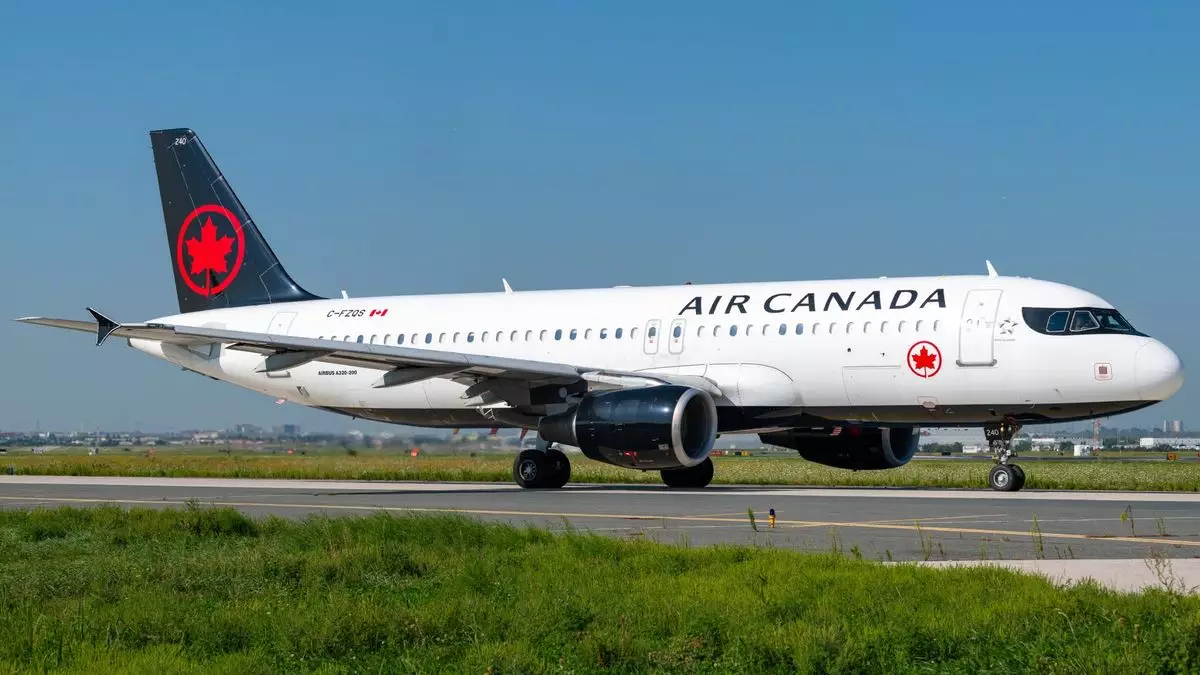As tensions mount between Air Canada and the Air Line Pilots Association (ALPA), the prospect of a significant disruption in air services looms ominously on the horizon. With the current impasse in labor negotiations threatening to escalate into a strike or lockout, Air Canada has signaled its intent to start winding down operations as early as Sunday if neither party concedes. This situation has become a multifaceted dilemma, intertwining the future of the airline with the expectations of nearly 110,000 passengers who rely on its flights daily.
The backdrop of this crisis is a legally mandated 21-day cooling-off period that began with the onset of stalled negotiations. This period, integral to Canadian labor law, restricts any imminent work stoppage until its conclusion on September 17. If the parties remain at loggerheads beyond this date, Air Canada or ALPA could initiate a strike or lockout by providing the required 72-hour notice, opening the door to a rapid escalation of the crisis.
Air Canada’s recent announcement captures a precarious balancing act: the airline is working to safeguard operations while trying to rein in costs and appease its pilots. The company has openly stated that its negotiation stance hinges largely on ALPA moderating its wage demands, which the airline contends are significantly above average increases in other sectors of the Canadian economy. This friction is particularly evident when juxtaposed against reports of Air Canada’s record profits and executive pay.
In response, ALPA has urged Air Canada to shift its approach from threats of operational disruption to serious negotiations that honor pilots’ contributions and provide adequate compensation. This clash—corporate profitability versus fair wages—highlights a broader issue within labor relations across industries, prompting both public and private discussions about the value of the workforce.
If a strike were to materialize, the fallout would be significant. The air travel landscape would not only be disrupted for travelers booked on Air Canada flights but also for those using Air Canada Rouge and regional services affiliated with the brand. While Air Canada Express flights operated by contracted pilots would continue, many passengers depend on interconnections that would be jeopardized. The potential for widespread cancellations and a significant backlog of travelers seeking refunds or rebooking options creates a scenario rife with logistical challenges.
Air Canada has taken precautions to mitigate the impact of this potential crisis. The airline plans to commence initial winding-down activities as early as Friday, laying the groundwork for an organized cessation of operations. This includes the cancellation of vacation packages and grounding certain aircraft to ensure that if and when a settlement is reached, services can resume with greater efficiency.
Customer Protections and Government Intervention
The airline has emphasized that any affected customers will be properly informed and offered refunds for canceled flights. However, available options could be limited, as tickets with other carriers may be scarce given the anticipated surge in demand from displaced travelers. The ongoing uncertainty about future travel arrangements adds a layer of complexity for customers attempting to navigate these turbulent waters.
In light of these developments, Air Canada has also signaled its intention to seek government intervention, echoing prior cases where Canadian authorities mandated the resumption of services in critical sectors. This appeal for intervention suggests the airline is acutely aware of the broader implications of a strike—not just on operational capabilities but also on its public image and customer satisfaction.
The current standoff between Air Canada and ALPA is emblematic of broader tensions within labor relations, particularly in industries pivoting on customer service amid rising operational costs. As both sides dig in, the clock is ticking toward September 17, when the cooling-off period expires, potentially initiating a crisis in air travel that affects thousands of Canadians.
In these final days of negotiation, the hope remains that both parties will find common ground, allowing Air Canada to avert chaos while treating its pilots with the equity they seek. Only time will tell if a solution is achievable, but as the stakes continue to rise, the pressure on both Air Canada and ALPA to resolve their differences has never been greater.

